[3] On Intimacy: A Fish Market
<2021>

Summary
A Fish Market is a satirical design project that looks into the online dating discourse from the lens of consumerism & material culture; highlighting the shift of intimacy and commodification of people in the dating ‘marketplace’.
A Fish Market is a satirical design project that looks into the online dating discourse from the lens of consumerism & material culture; highlighting the shift of intimacy and commodification of people in the dating ‘marketplace’.
Keywords
Consumerism
Market metaphor
Online dating
Relationshopping
Self‑presentation
Consumerism
Market metaphor
Online dating
Relationshopping
Self‑presentation
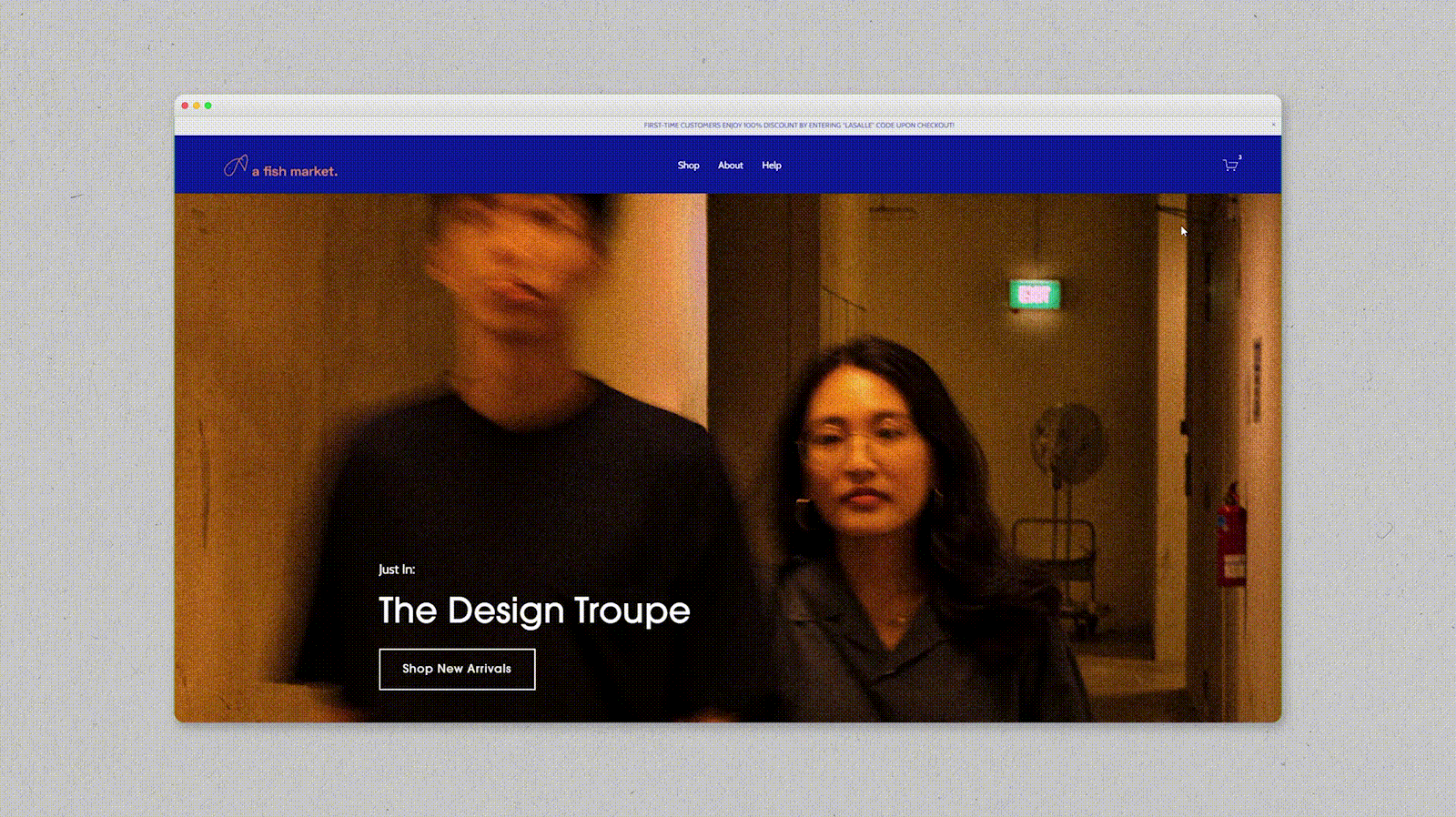
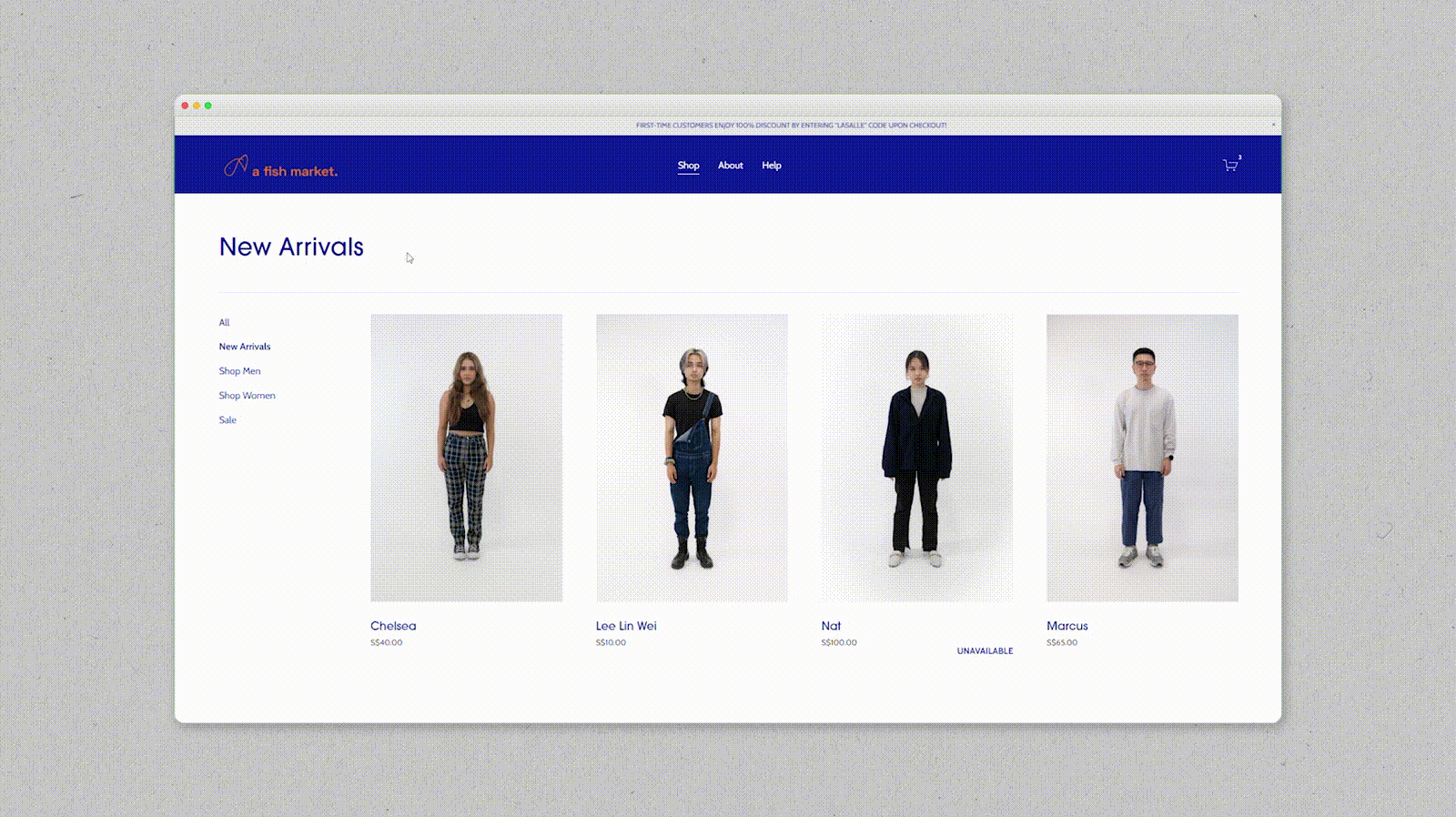
Departing from the theme of intimacy and courtship, the final installation of the ‘On Intimacy’ series finds itself reflecting on the digital dating discourse. A Fish Market delivers a fully-functional shopping site that showcases humans as products; commenting upon the commodification and depersonalization of romance within the virtual space of dating apps.
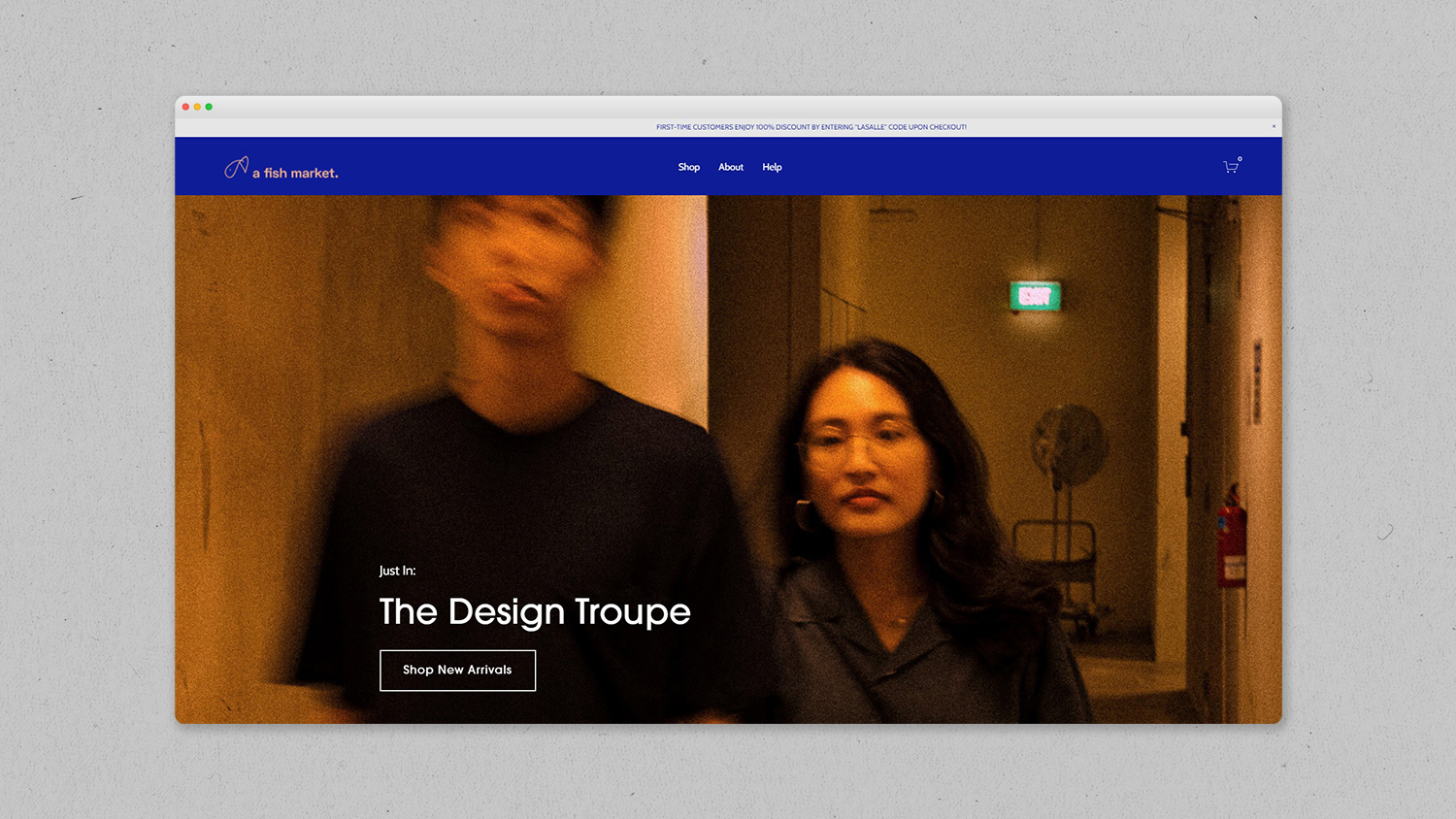
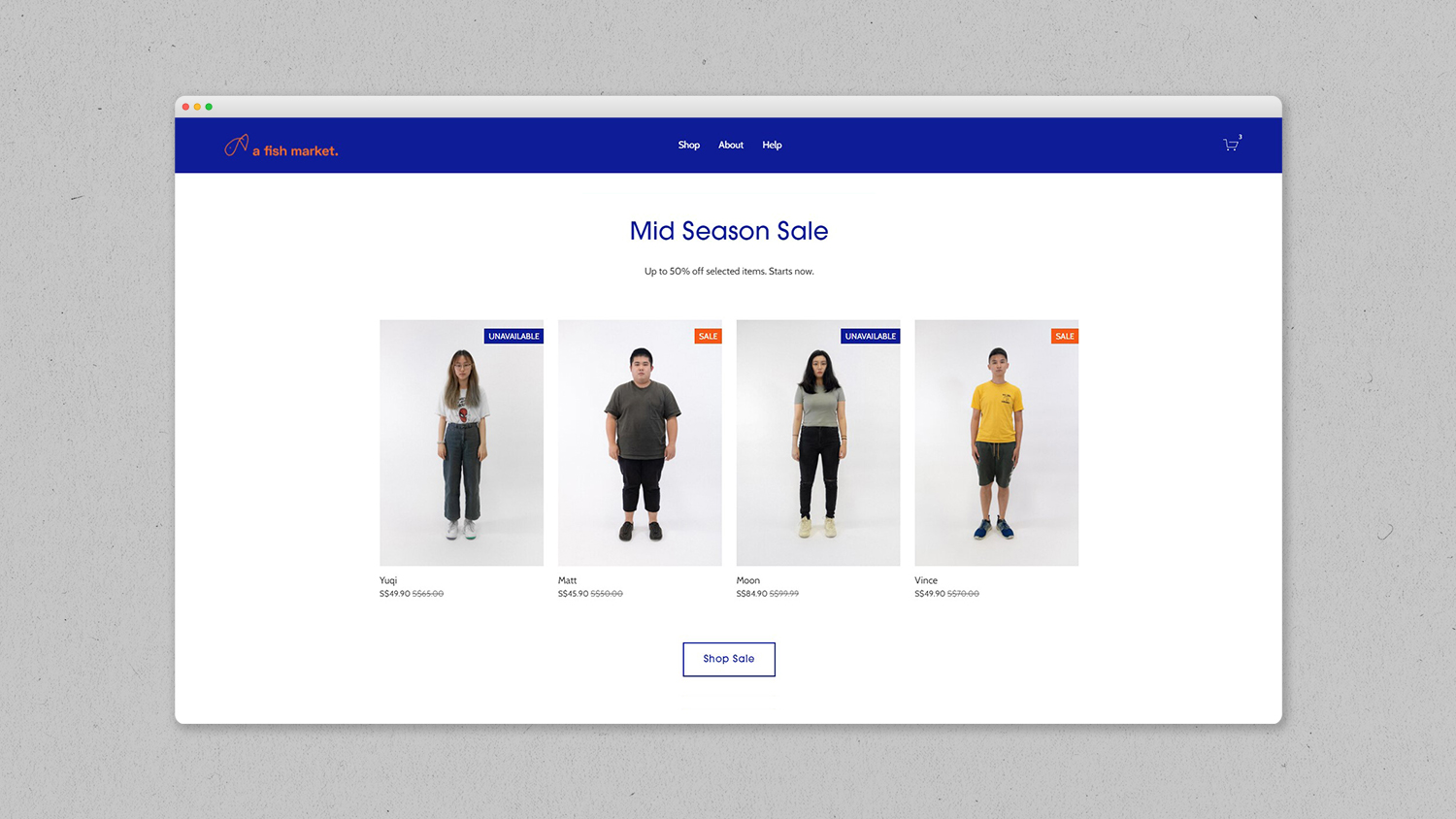
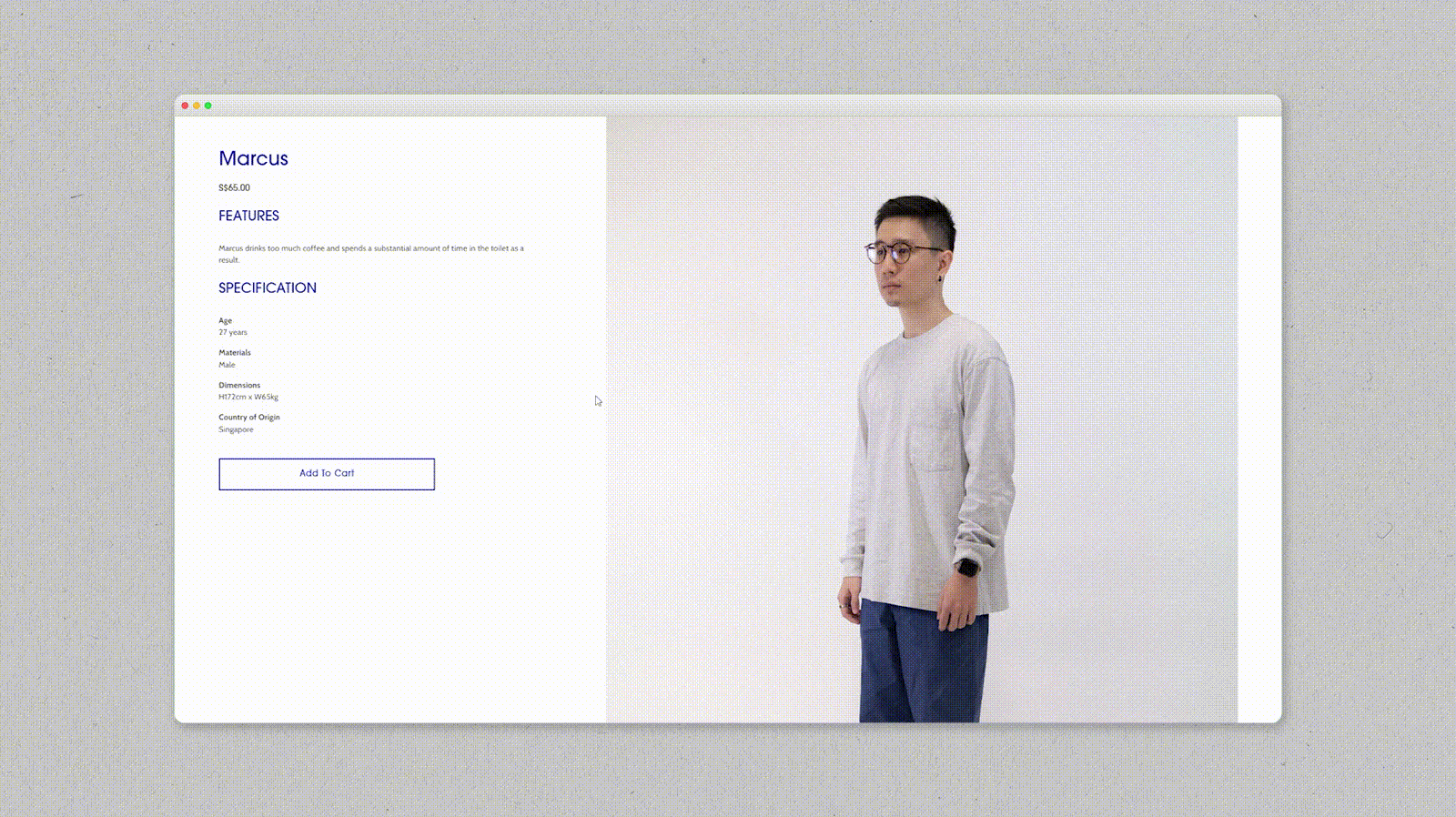
With ubiquitous access to the internet and diminished association with social stigma, online dating had undeniably shifted from a marginal to a mainstream means to meet potential partners (Ellison et al. 416).
Among the few novel qualities of online dating—such as endless number of potential dates (Finkel et al. 6, Hobbs et al. 272) and mixed-modality dating (Ramirez et al. 100)—perhaps, unique to its predecessors are the frameworks of self-presentation (Hancock et al. 450) & self-disclosure (Manning 309). The two frameworks alter the romantic acquaintance process by providing daters a broad range of (asynchronous & editable) information on potential partners before they meet face-to-face (FtF) (Finkel et al. 3).
Combined with the need to stand out in such a large pool, online daters are ipso facto incentivized to present themselves strategically, crafting deceptive and idealized profiles instead of an authentic one (Ellison et al. 424, Ward 1646), something Adam Arvidsson calls as “commodification of affect” that turns dating apps into “a metaphorical marketplace” where individuals shop each other’s profiles (qtd in Heino et al. 429).
Among the few novel qualities of online dating—such as endless number of potential dates (Finkel et al. 6, Hobbs et al. 272) and mixed-modality dating (Ramirez et al. 100)—perhaps, unique to its predecessors are the frameworks of self-presentation (Hancock et al. 450) & self-disclosure (Manning 309). The two frameworks alter the romantic acquaintance process by providing daters a broad range of (asynchronous & editable) information on potential partners before they meet face-to-face (FtF) (Finkel et al. 3).
Combined with the need to stand out in such a large pool, online daters are ipso facto incentivized to present themselves strategically, crafting deceptive and idealized profiles instead of an authentic one (Ellison et al. 424, Ward 1646), something Adam Arvidsson calls as “commodification of affect” that turns dating apps into “a metaphorical marketplace” where individuals shop each other’s profiles (qtd in Heino et al. 429).

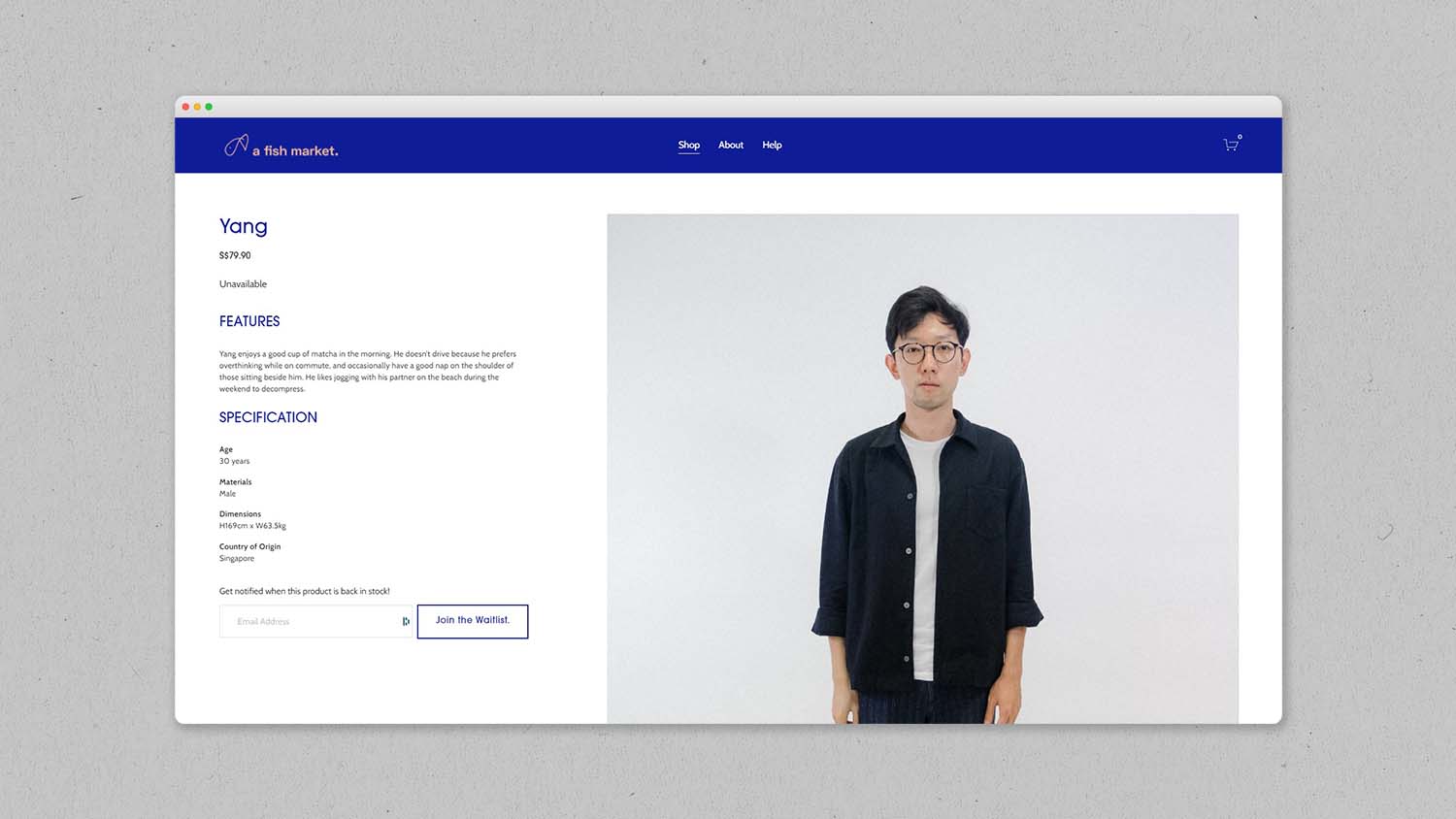

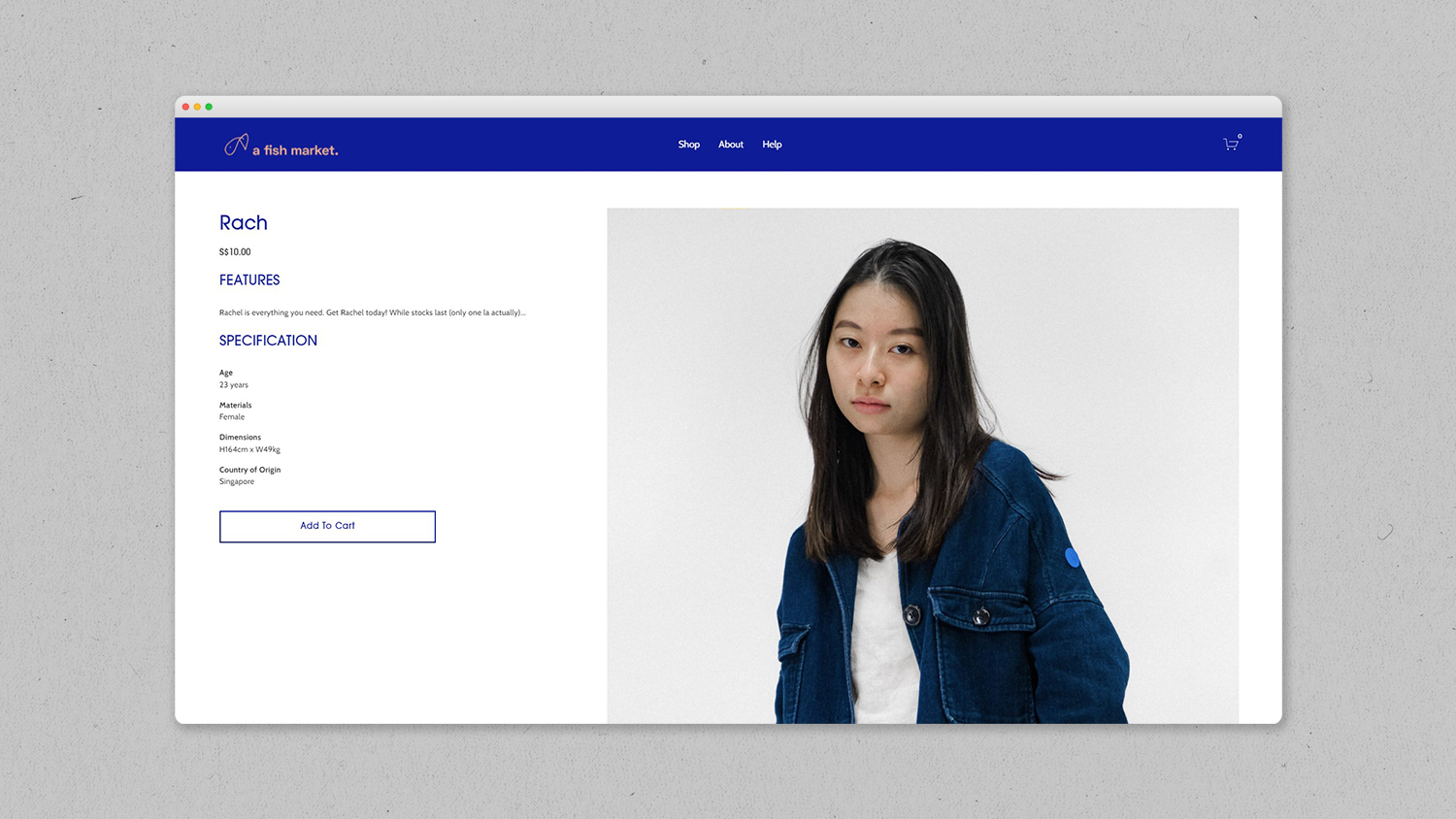
The website features a fully-functional shopping experience, from an add-to-cart function, promo codes, payment gateway, to order confirmation email. Open call were put up to source for model-volunteers, and the photoshoot lasted for a week, with over 400 frames collected at the end of the session.
Subjects were also instructed to participate in a single-blind data collection process, where they fill a few short questions (nickname, age, height, etc.) The data were processed in CSV using formulas to generate ‘product’ information that is fed into Squarespace’s Commerce API.
As an example, the models’ relationship status corresponds to their stock availability, and their price-value were derived from a question that asked the models to self-rate their attractiveness in numbers of 0.0-100.0.
Subjects were also instructed to participate in a single-blind data collection process, where they fill a few short questions (nickname, age, height, etc.) The data were processed in CSV using formulas to generate ‘product’ information that is fed into Squarespace’s Commerce API.
As an example, the models’ relationship status corresponds to their stock availability, and their price-value were derived from a question that asked the models to self-rate their attractiveness in numbers of 0.0-100.0.
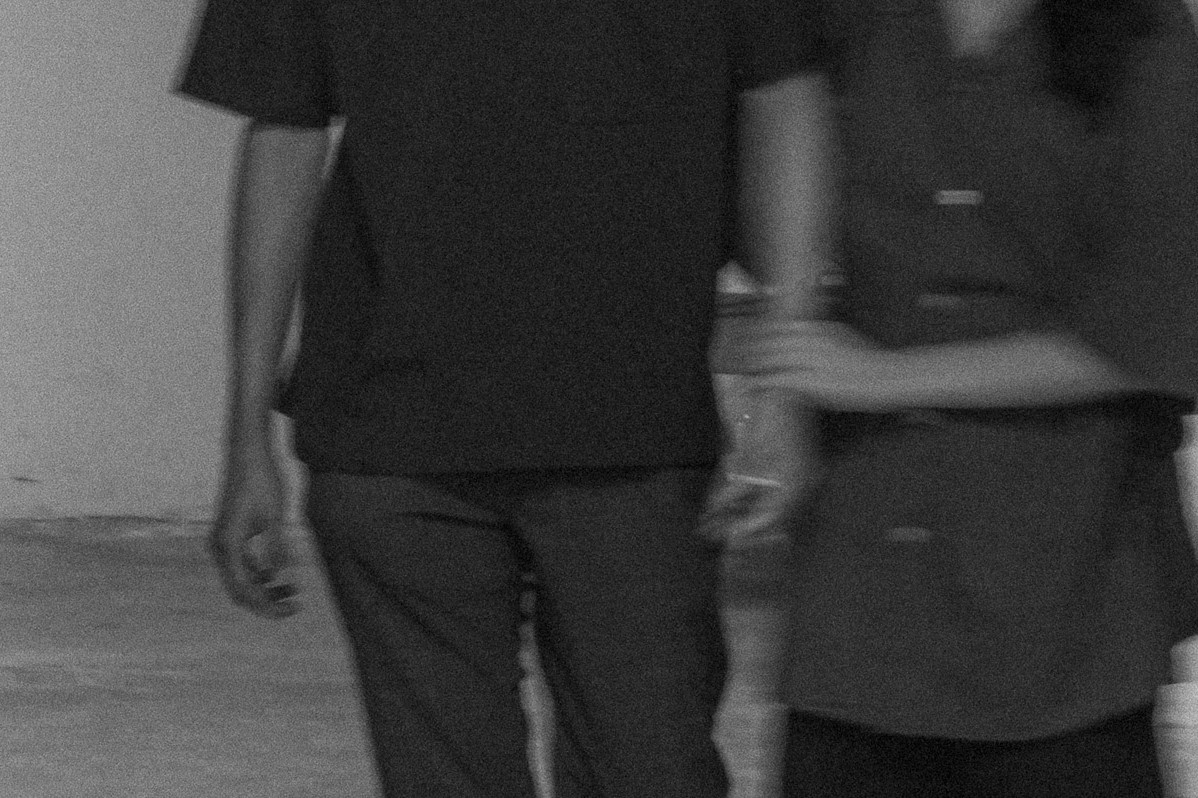
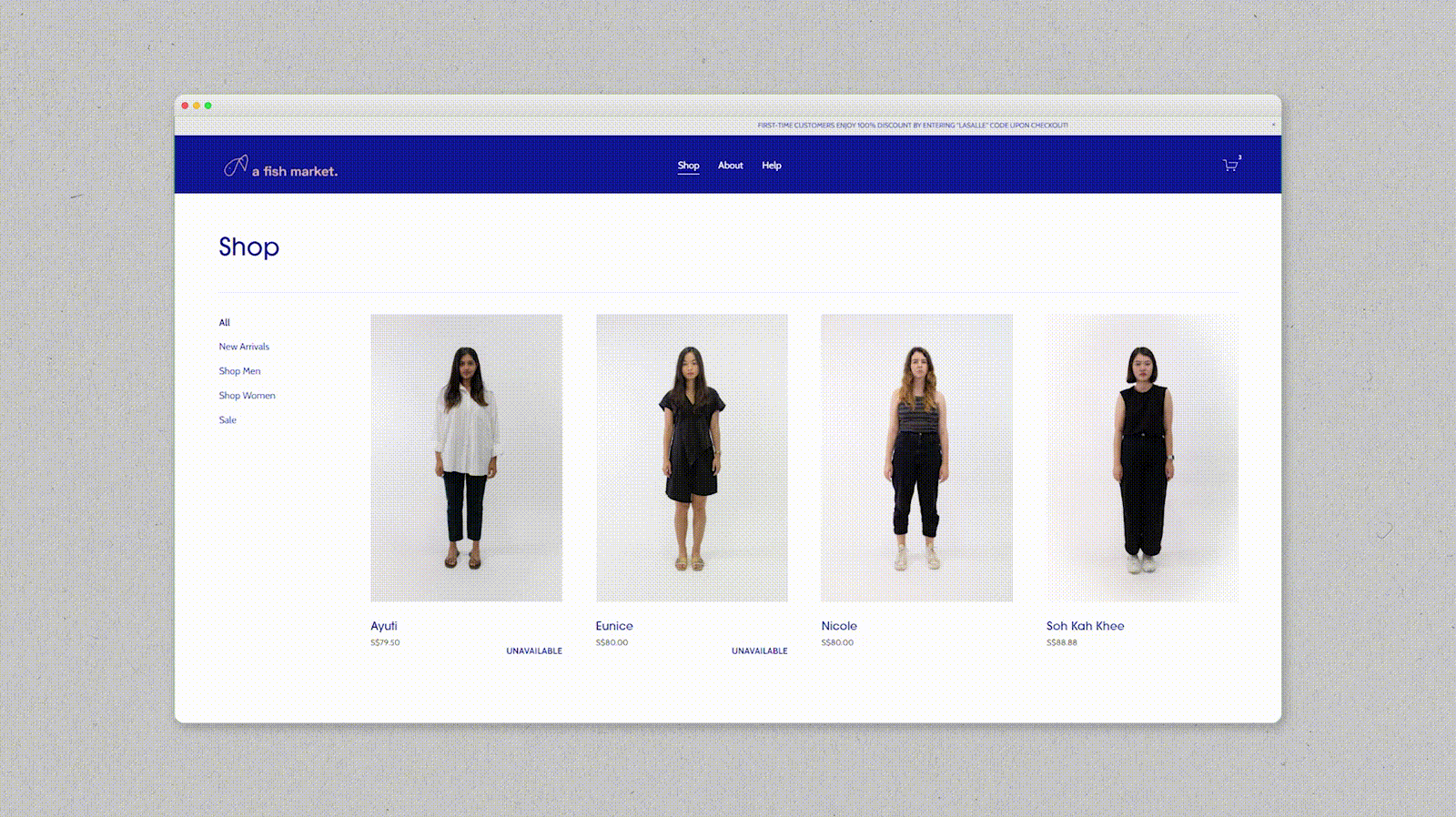
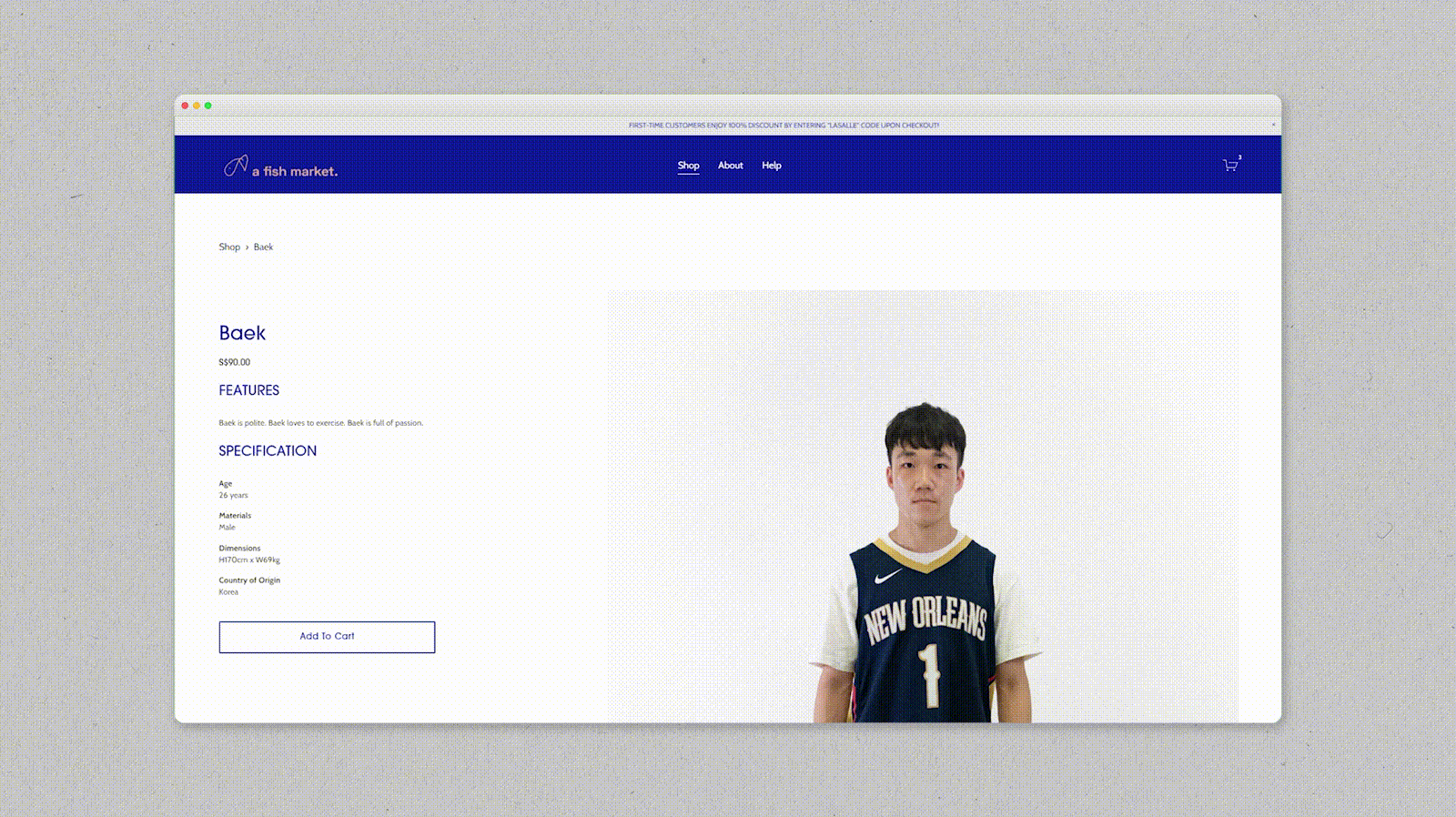
Re material culture, intimacy, and the pandemic, Hardon prompted us to think more about the physical objects we bring into our lives and the story we connect to them to end the cycle of consumerism & materialism, during a Dutch Design Week symposium.
Similarly, A Fish Market provokes modern daters to rethink and reflect on their ‘relationshopping’ habit. It invites online daters to reconcile intimacy into the modality through the practice of mindfulness. After all, we want to date the person, not the persona.
Similarly, A Fish Market provokes modern daters to rethink and reflect on their ‘relationshopping’ habit. It invites online daters to reconcile intimacy into the modality through the practice of mindfulness. After all, we want to date the person, not the persona.
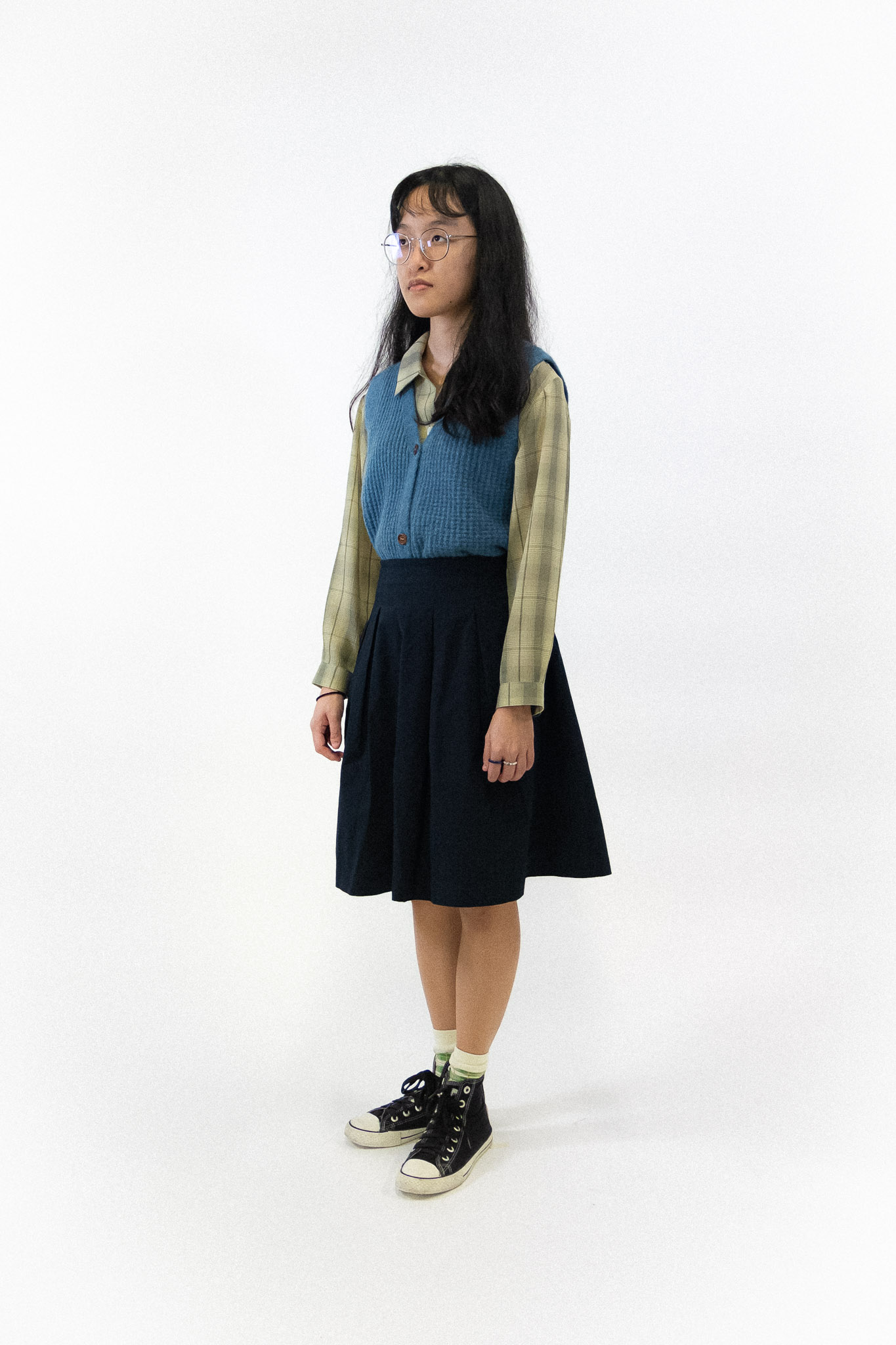

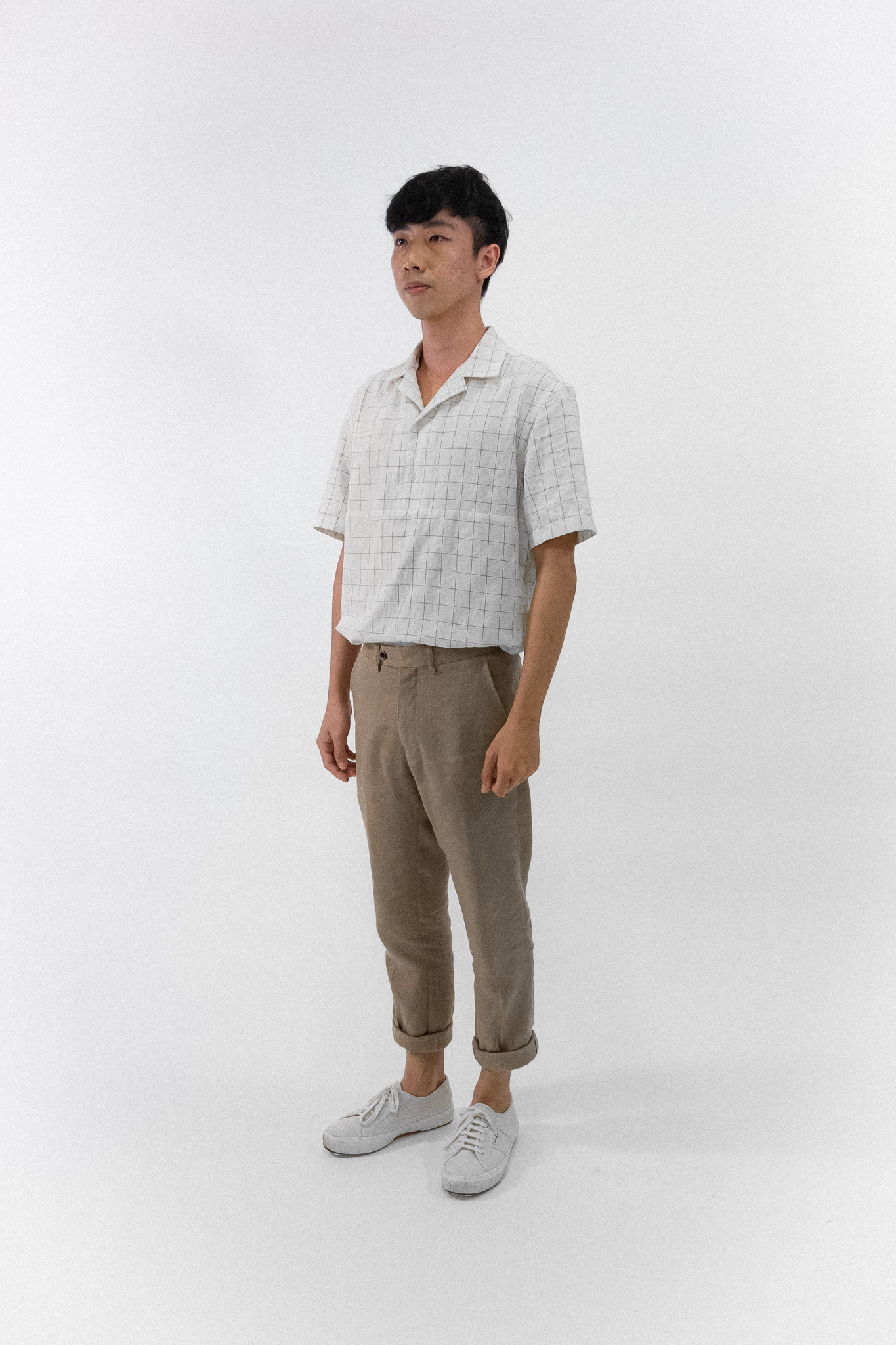
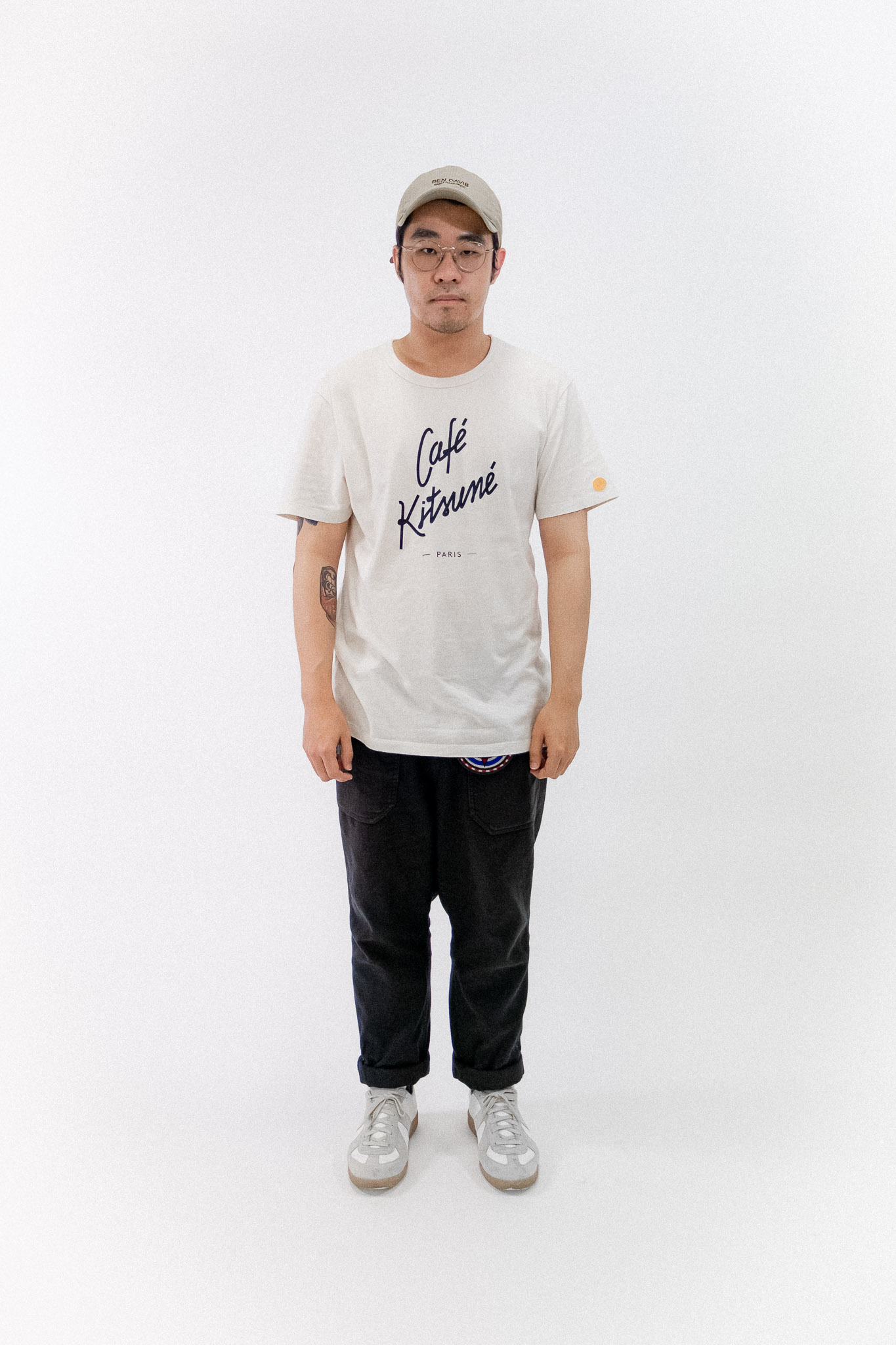

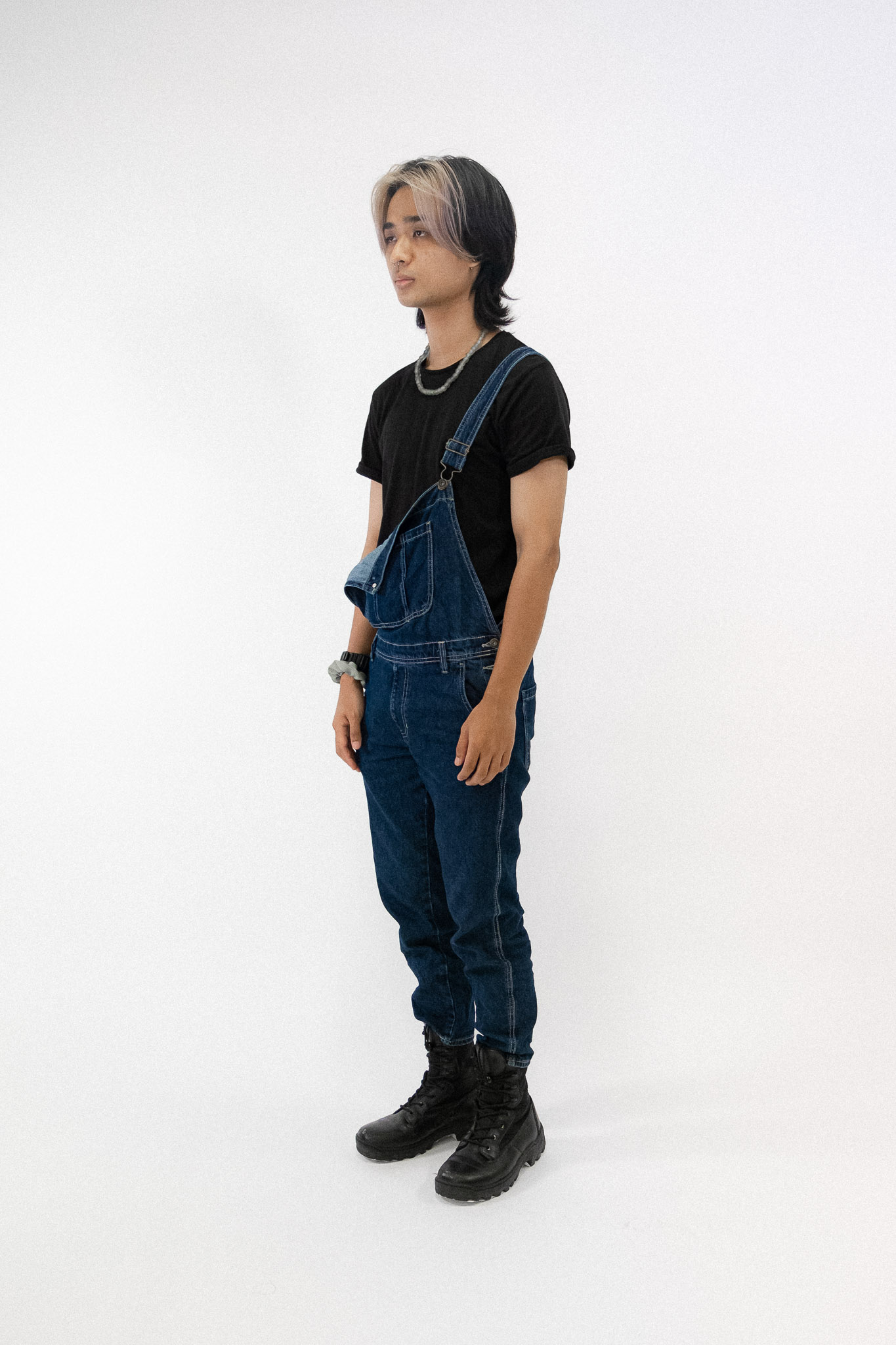

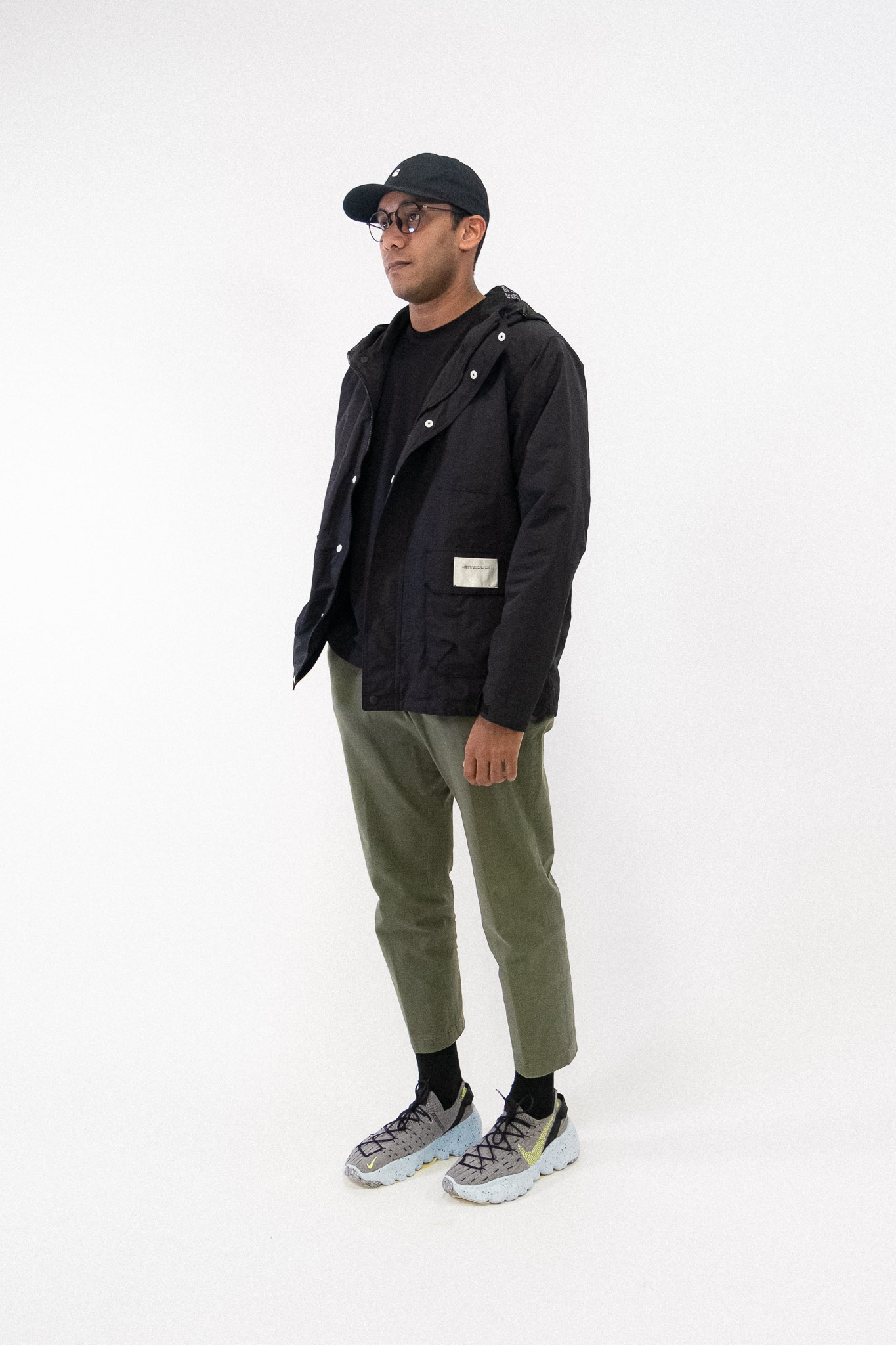




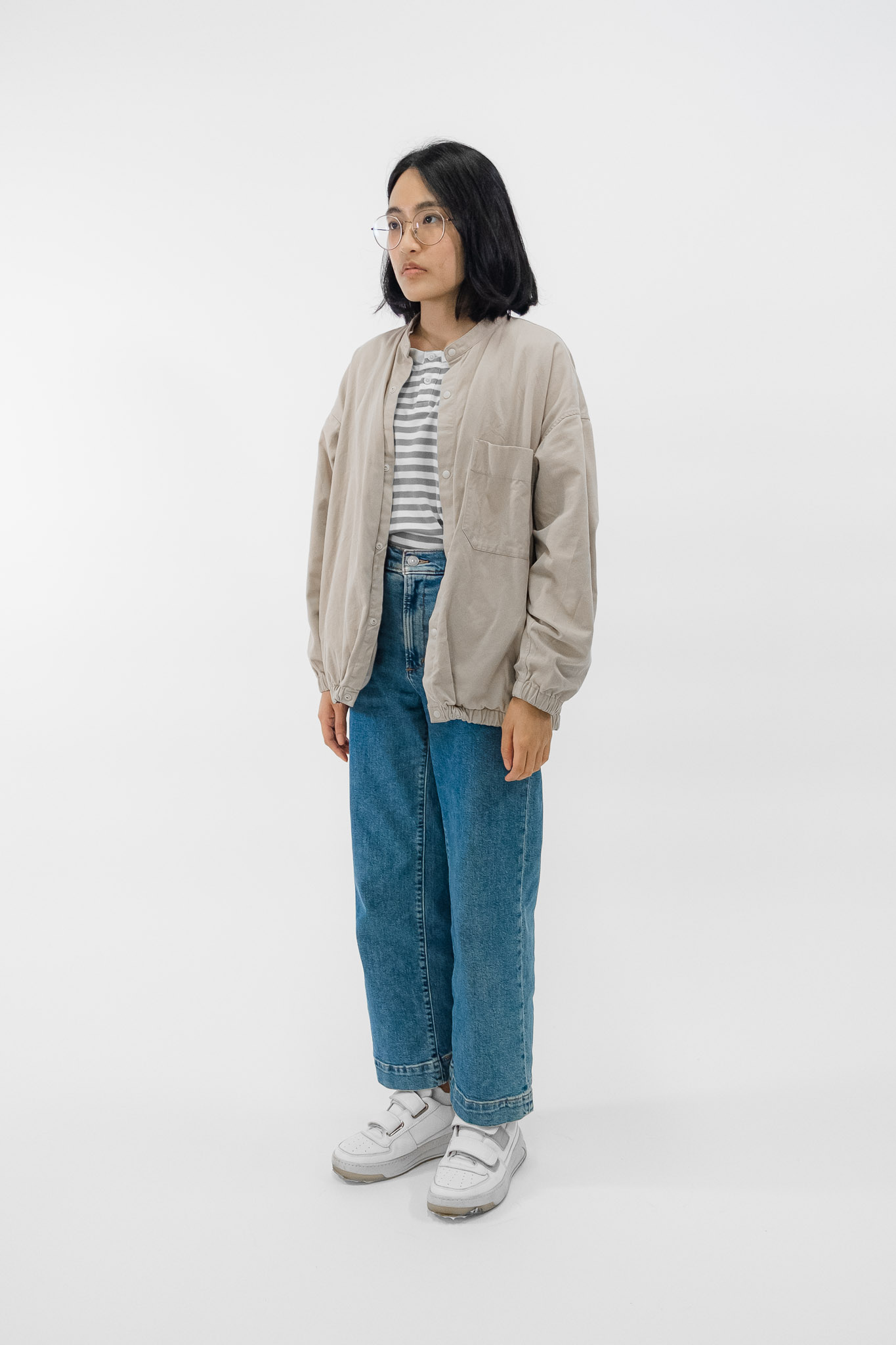
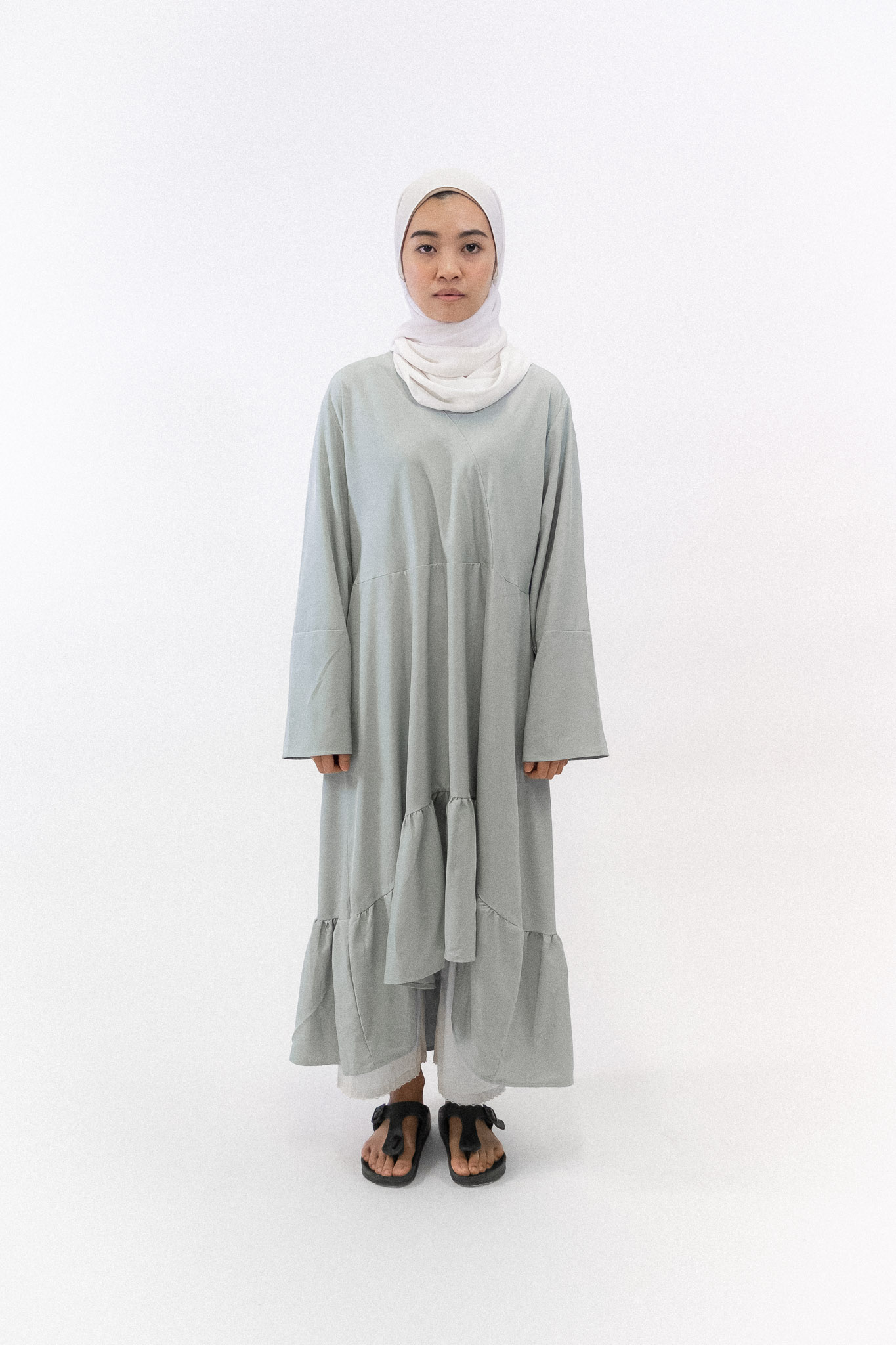

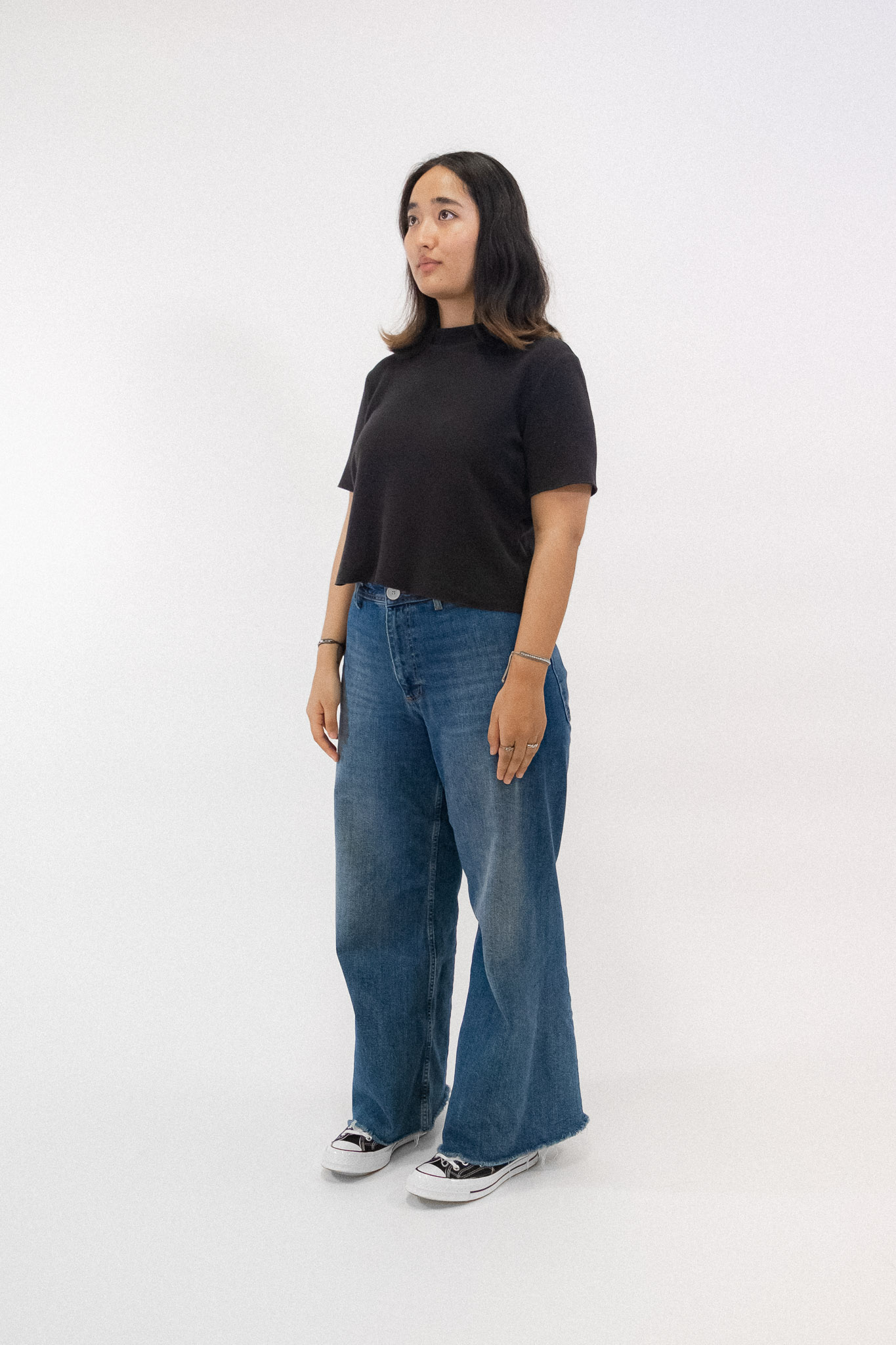

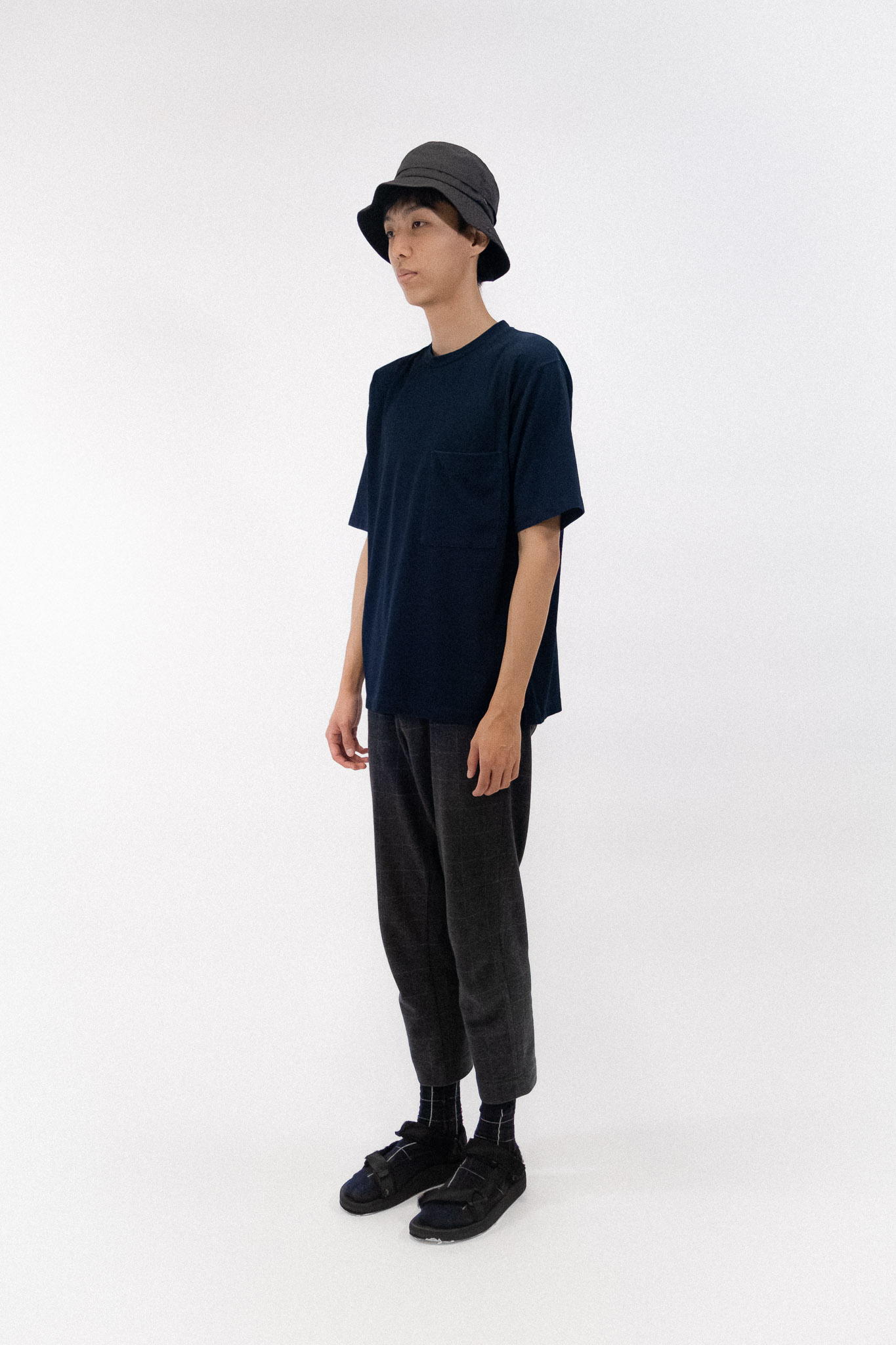

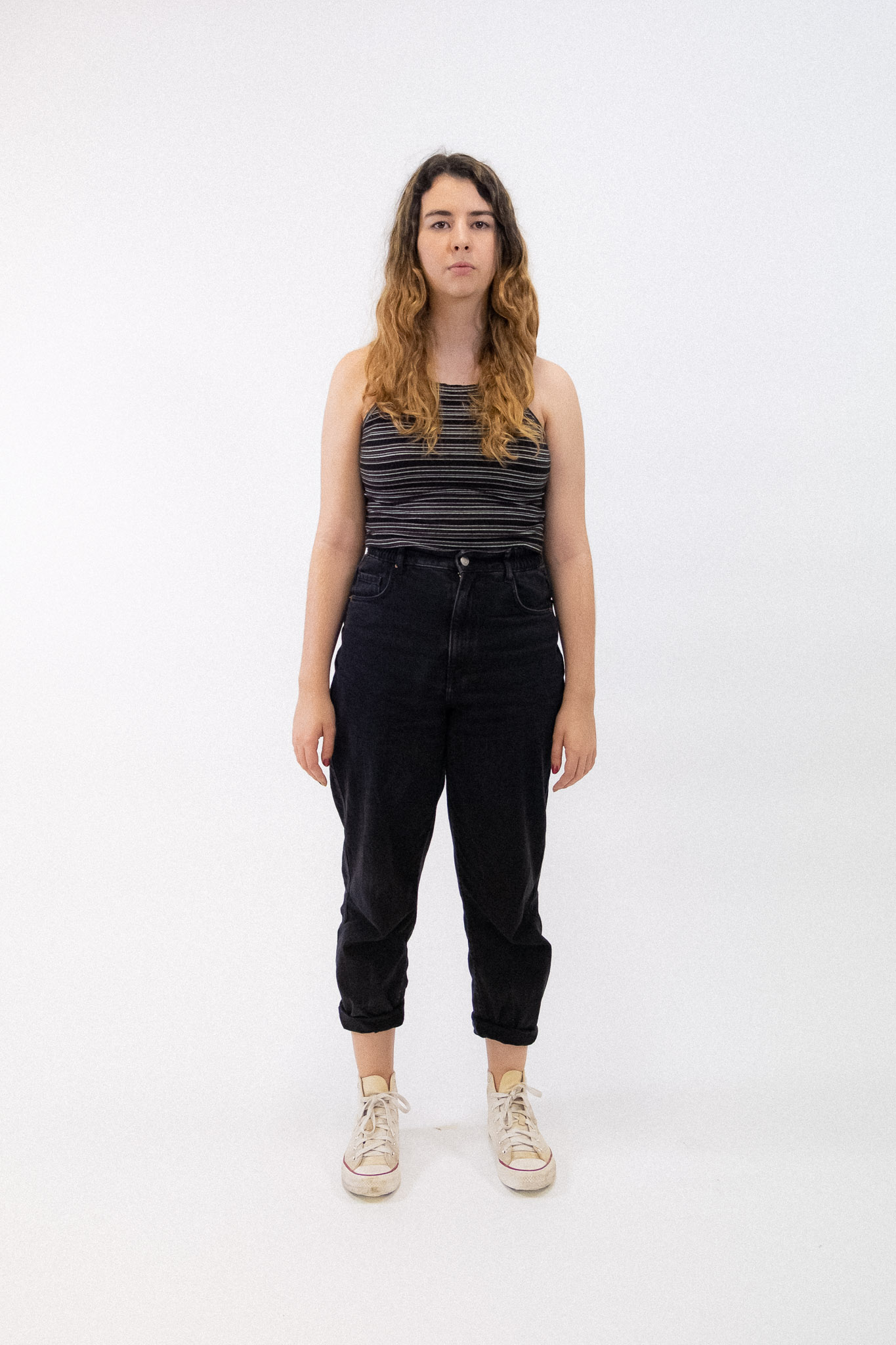


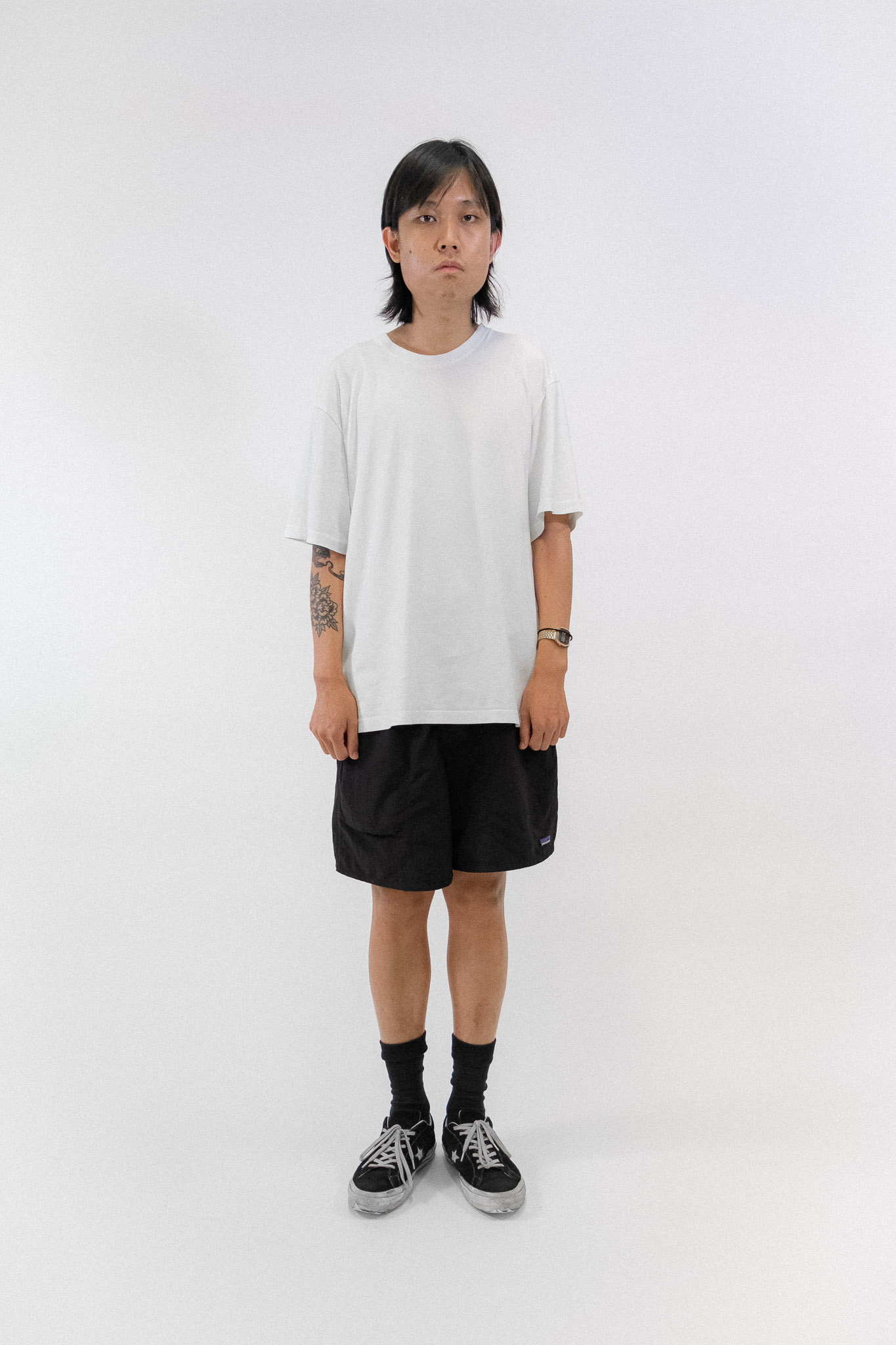

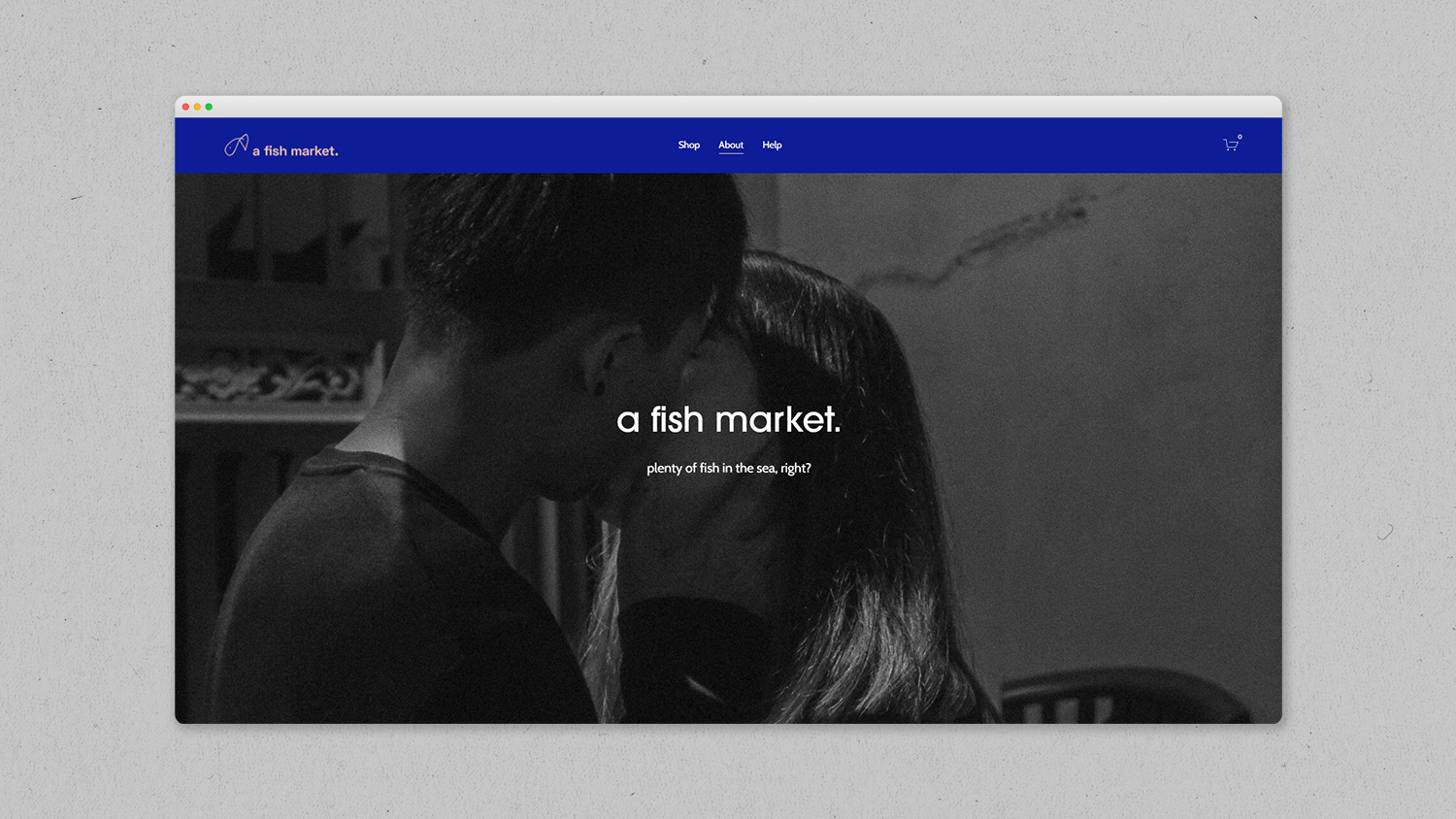
Bibliography
Ellison, Nicole, et al. “Managing Impressions Online: Self-Presentation Processes in the Online Dating Environment.” Journal of Computer-Mediated Communication, vol. 11, no. 2, 17 July 2006, pp. 415–441., URL. Accessed 9 February 2021.
Finkel, Eli J., et al. “Online Dating: A Critical Analysis From the Perspective of Psychological Science.” Psychological Science in the Public Interest, vol. 13, no. 1, 7 Mar. 2012, pp. 3–66., URL. Accessed 12 January 2021.
Hancock, Jeffrey T., et al. “The Truth about Lying in Online Dating Profiles.” Proceedings of the SIGCHI Conference on Human Factors in Computing Systems, 29 Apr. 2007, pp. 449–452., URL. Accessed 9 February 2021.
Heino, Rebecca D., et al. “Relationshopping: Investigating the Market Metaphor in Online Dating.” Journal of Social and Personal Relationships, vol. 27, no. 4, 9 June 2010, pp. 427–447., URL. Accessed 18 March 2021.
Hobbs, Mitchell, et al. “Liquid Love? Dating Apps, Sex, Relationships and the Digital Transformation of Intimacy.” Journal of Sociology, vol. 53, no. 2, 5 Sept. 2016, pp. 271–284., URL. Accessed 9 February 2021.
“Live Talk with Dutch Design Week about Our Relationship with Products.” YouTube, Dezeen, 20 Oct. 2020, URL. Accessed 24 March 2021.
Manning, Jimmie. “Construction of Values in Online and Offline Dating Discourses: Comparing Presentational and Articulated Rhetorics of Relationship Seeking.” Journal of Computer-Mediated Communication, vol. 19, no. 3, 1 Apr. 2014, pp. 309–324., URL. Accessed 9 February 2021.
Meredith, Brooke. “‘Relationshopping’ Is Ruining Romance.” Medium, Soul Stirring Love, Rockin’ Relationships, and a Life Most Fulfilled, 1 Sept. 2020, URL. Accessed 3 January 2022.
Ramirez, Artemio, et al. “When Online Dating Partners Meet Offline: The Effect of Modality Switching on Relational Communication between Online Daters .” Journal of Computer-Mediated Communication, vol. 20, no. 1, 17 Sept. 2014, pp. 99–114., URL. Accessed 18 January 2022.
Ward, Janelle. “What Are You Doing on Tinder? Impression Management on a Matchmaking Mobile App.” Information, Communication & Society, vol. 20, no. 11, 6 Nov. 2016, pp. 1644–1659., URL. Accessed 8 March 2021.
Ellison, Nicole, et al. “Managing Impressions Online: Self-Presentation Processes in the Online Dating Environment.” Journal of Computer-Mediated Communication, vol. 11, no. 2, 17 July 2006, pp. 415–441., URL. Accessed 9 February 2021.
Finkel, Eli J., et al. “Online Dating: A Critical Analysis From the Perspective of Psychological Science.” Psychological Science in the Public Interest, vol. 13, no. 1, 7 Mar. 2012, pp. 3–66., URL. Accessed 12 January 2021.
Hancock, Jeffrey T., et al. “The Truth about Lying in Online Dating Profiles.” Proceedings of the SIGCHI Conference on Human Factors in Computing Systems, 29 Apr. 2007, pp. 449–452., URL. Accessed 9 February 2021.
Heino, Rebecca D., et al. “Relationshopping: Investigating the Market Metaphor in Online Dating.” Journal of Social and Personal Relationships, vol. 27, no. 4, 9 June 2010, pp. 427–447., URL. Accessed 18 March 2021.
Hobbs, Mitchell, et al. “Liquid Love? Dating Apps, Sex, Relationships and the Digital Transformation of Intimacy.” Journal of Sociology, vol. 53, no. 2, 5 Sept. 2016, pp. 271–284., URL. Accessed 9 February 2021.
“Live Talk with Dutch Design Week about Our Relationship with Products.” YouTube, Dezeen, 20 Oct. 2020, URL. Accessed 24 March 2021.
Manning, Jimmie. “Construction of Values in Online and Offline Dating Discourses: Comparing Presentational and Articulated Rhetorics of Relationship Seeking.” Journal of Computer-Mediated Communication, vol. 19, no. 3, 1 Apr. 2014, pp. 309–324., URL. Accessed 9 February 2021.
Meredith, Brooke. “‘Relationshopping’ Is Ruining Romance.” Medium, Soul Stirring Love, Rockin’ Relationships, and a Life Most Fulfilled, 1 Sept. 2020, URL. Accessed 3 January 2022.
Ramirez, Artemio, et al. “When Online Dating Partners Meet Offline: The Effect of Modality Switching on Relational Communication between Online Daters .” Journal of Computer-Mediated Communication, vol. 20, no. 1, 17 Sept. 2014, pp. 99–114., URL. Accessed 18 January 2022.
Ward, Janelle. “What Are You Doing on Tinder? Impression Management on a Matchmaking Mobile App.” Information, Communication & Society, vol. 20, no. 11, 6 Nov. 2016, pp. 1644–1659., URL. Accessed 8 March 2021.